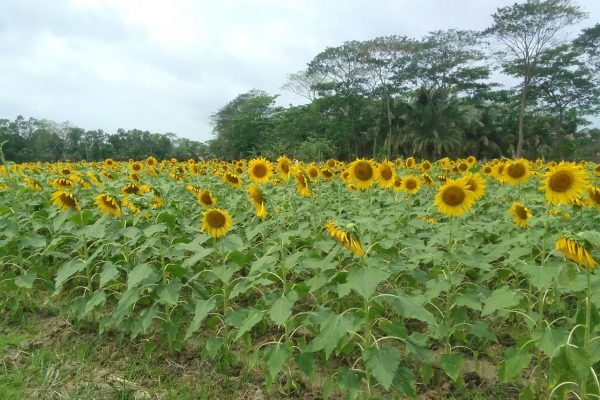Reading Time: 3 minutes
The Delta variant continues to ravage Bangladesh, with July having the most fatalities to COVID-19 to date. BRAC has launched a campaign to support families hit the hardest, and the Community Fort for Resisting COVID-19 project is running at full speed. In addition, we update you on rising cases and flooding in Cox’s Bazar, in both the Rohingya camps and host communities.
Dear colleagues, partners and friends,
The Delta variant is continuing to spiral, fuelled by the large crowds celebrating Eid-ul-Azha, one of the largest religious festivals in the world.
The first nationwide lockdown of 2021 was imposed from 1 July in Bangladesh, but restrictions were relaxed from 14-22 July to celebrate Eid. Mass public awareness was undertaken in the lead-up to and during the festival, including antigen testing booths set up in key cattle markets, but inevitably some markets became hotspots. The lockdown was reimposed from 23 July and is expected to continue until 5 August.
The lockdowns have continued to prove particularly harsh for households in vulnerable conditions. The new support package declared by the Government of Bangladesh to support 1.7 million households will go a long way to reduce immediate hunger. BRAC has also launched the Dakche Abar Desh (Bangladesh calls again) campaign to support families hit the hardest by the pandemic. Grameenphone has joined hands, as have several commercial banks under their special CSR programmes, to contribute to this campaign. BRAC has also contributed from its own fund, as has its staff, who all contributed one day’s wage.
50,000 families in 19 of the most vulnerable districts received emergency cash transfers through mobile money before Eid, and the next batch of transfers, currently being mobilised, will reach a further 100,000 families. Further support will be announced as the campaign progresses.
These efforts may be enough to bring food to these families for 2-4 weeks, but, as we saw last year, containing people within their homes for anything beyond that duration will be next to impossible. It is critical for the government to invest these next few weeks of lockdown developing a strategy to address this pandemic more sustainably – and take a participatory and inclusive approach in that development process.
I am happy to note that the government is targeting to vaccinate 80% of the population by 2022, and have announced their plan to inoculate 10 million people each month. I believe the government has the political will to execute the programme, but I hope that the supportive role of non-government organisations in bolstering national capacity is considered. Additionally, between now and the point of immunisation, I hope that improving personal hygiene and implementing a universal mask mandate remains on the agenda.
In terms of mask-wearing and other behavioural changes at the community level, I am happy to report that the Community Fort for Resisting COVID-19 (CFRC) project is running at full speed. Here is a brief update on what the project has achieved so far:
- 7.4 million masks out of the target of 15 million have been distributed by 35,053 frontline staff and volunteers.
- BRAC’s frontline responders are screening for COVID-19 patients and providing response services in their own communities. Over the past two months, 661,703 households have been visited by our community health workers, 121,144 individuals were screened for COVID-19 and 67,198 suspected cases were identified at the community level.
- Our telemedicine services are providing free comprehensive healthcare consultations to people unable to access doctors. On average, BRAC’s doctors receive over 800 calls per day. 45,191 suspected cases (67%) have been connected to telemedicine services.
- We have trained and mobilised 13,670 community leaders to reinforce mask-wearing habits in their respective communities. More than 8,000 existing community groups are attached to government community clinics, and 163,054 members of community groups have been oriented and trained on distributing masks, and reinforcing mask-wearing practices.
BRAC will continue to prioritise the most vulnerable – the elderly, pregnant or lactating mothers, people with disabilities, women-headed households, people living in ultra-poverty and those who are not receiving support from any other sources. Please see details on the current situation and our work in the latest situation report here.
Sincerely,
Asif Saleh
Asif Saleh is Executive Director of BRAC in Bangladesh.





